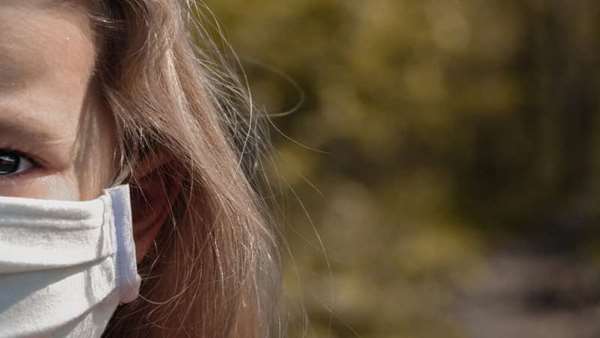Children produce different antibodies in response to SARS-CoV-2
Children and adults produce different types and amounts of antibodies in response to infection with the new coronavirus, SARS-CoV-2, a new study from researchers at Columbia University Vagelos College of Physicians and Surgeons has found.
Children and adults produce different types and amounts of antibodies in response to infection with the new coronavirus, SARS-CoV-2, a new study from researchers at Columbia University Vagelos College of Physicians and Surgeons has found.
The differences in antibodies suggest the course of the infection and immune response is distinct in children and most children easily clear the virus from their bodies.
"Our study provides an in-depth examination of SARS-CoV-2 antibodies in kids, revealing a stark contrast with adults," says Columbia University immunologist Donna Farber, Ph.D., the George H. Humphreys II Professor of Surgical Sciences in the Department of Surgery, who led the study with Matteo Porotto, Ph.D., associate professor of viral molecular pathogenesis in Columbia's Department of Pediatrics. The first authors, Stuart Weisberg, MD, Ph.D., assistant professor of pathology & cell biology, and Thomas Connors, MD, assistant professor of pediatrics, enrolled patients into the study and conducted the data analysis.
"In kids, the infectious course is much shorter and probably not as disseminated as in adults," Porotto adds. "Kids may clear this virus more efficiently than adults and they may not need a strong antibody immune response to get rid of it."
Children less affected by SARS-CoV-2
One of the striking manifestations of the COVID-19 pandemic is that the majority of children cope well with the virus while older people struggle.
"This is a new infection for everybody," Farber says, "but children are uniquely adapted to see pathogens for the first time. That's what their immune system is designed to do. Children have a lot of naive T cells that are able to recognize all sorts of new pathogens, whereas older people depend more on our immunological memories. We're not as able to respond to a new pathogen like children can."
Children make fewer SARS-CoV-2 neutralizing antibodies
Among the 47 children in the study, 16 were treated at Columbia University Irving Medical Center for MIS-C and 31 children of similar ages had tested positive for the virus after visiting the medical center for the treatment of other conditions. Half of the children without MIS-C had no COVID-19 symptoms. The 32 adults in the study ranged from severely affected patients admitted to the hospital to those with milder disease who recovered at home.
Both groups of children produced the same antibody profile, the study found, which differed from that of adults.
Compared with adults, children produced fewer antibodies against the virus's spike protein—which the virus uses to infect human cells. The children's antibodies had the least neutralizing activity, while all adults, including young adults in their 20s, produced neutralizing antibodies. The sickest adults had the most neutralizing activity.
Though it may seem counterintuitive that the sickest patients produce antibodies with the greatest neutralizing activity, Farber says that likely reflects the amount of time the virus is present in the sickest patients.
"There is a connection between the magnitude of your immune response and the magnitude of the infection: The more severe the infection, the more robust the immune response, because you need to have more immune cells and immune reactions to clear a higher dose of a pathogen."
https://medicalxpress.com/news/2020-11-children-antibodies-response-sars-cov-.html




ارسال به دوستان